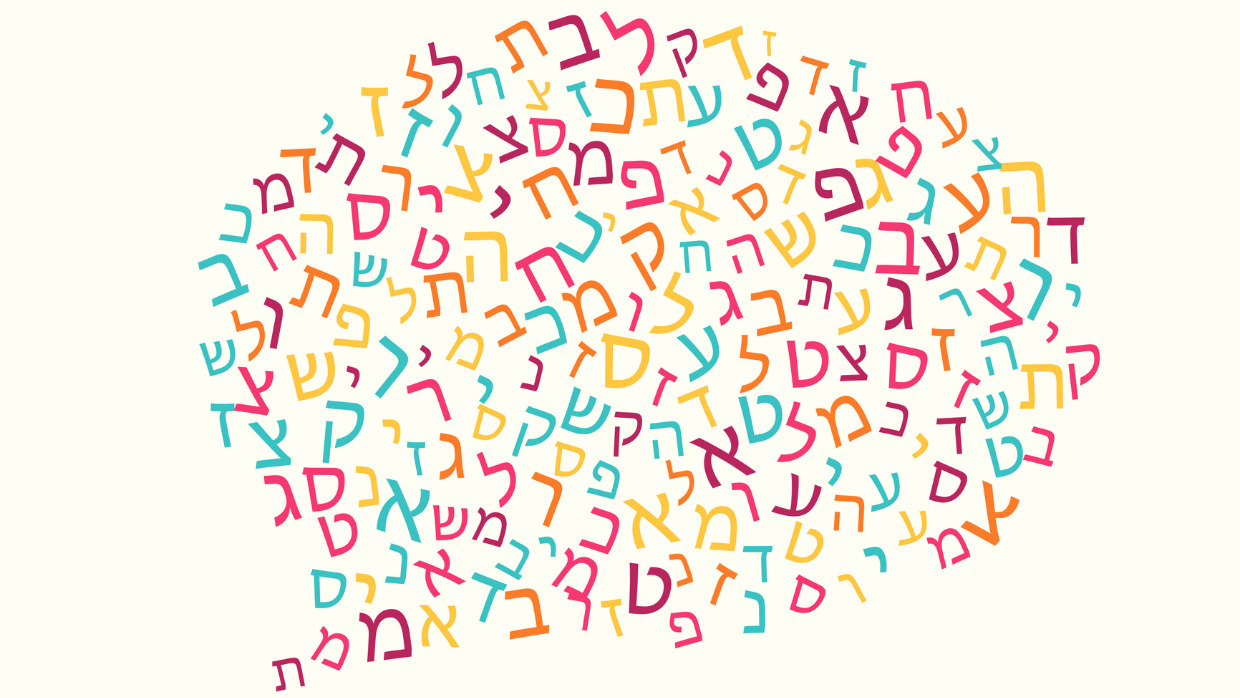 An Open Letter to University Presidents
An Open Letter to University Presidents


4 min read
How many of these Hebrew words do you know?
Wish you can speak Hebrew? Chances are, you know more Hebrew words than you think. Here are a bunch of contemporary Hebrew words (and a few short sentences) that you’re probably already familiar with.
Anyone who ever attended Hebrew school knows that shalom means hello, goodbye and peace.
The root of shalom means whole, complete. The Talmud teaches that Shalom is also one of God’s Names, and therefore you should not say it in the bathroom.
Shalom is used in the common Hebrew questionת “How are you?” – Ma Shlomcha?
The word Ma means “what”, like you say at the Passover Seder during the Four Questions, “Ma nishtana…” which literally means “What is different”.
When asking someone how they are in Hebrew, you ask them Ma (what) is their Shalom (the status of their wholeness). What’s your status at the moment? Are you feeling complete and calm, or frazzled?
Shalom gets a new ending depending on whether you’re speaking to an individual or to more than one person, and whether you’re speaking to a man or a woman. To ask how a man is doing, you say: Ma Shlomcha? To say “How are you?” to a woman, you say: Ma shlomech?
A common reply to ma shlomcha is Beseder, I’m okay. You already knew the root of this word in Hebrew. On Passover we have Seder, which means “order”. So the word “beseder” adds the Hebrew prefix “be”, which means “in”, so beseder literally means “in order” – it’s all good, copacetic, in order.
You might be familiar with a Hebrew term for Jewish holidays: Yom Tov. Yom means day. (Think of Yom Kippur, the “Day” of “Atonement”.) Tov means “good”. So a short answer to the question “how are you” is Tov! - I’m good!
Another common answer to the question “How are you?” is Baruch Hashem, Thank God, Blessed is God. The word “baruch” means blessed, the first word said when making a blessing “Baruch ata…” The word “Hashem” means The Name. Many Jews refer to God using this term in recognition that the essence of God is Infinite and unknowable.
Many synagogues in America have the word “Beth” in their name – Beth Shalom, Beth Tzedec, Beth Tefila. “Beth” is an English approximation of the Hebrew word Bayit, meaning “house”. (In some Hebrew phrases, Bayit is changed to “Beit”.) Beth Shalom literally means Beit Shalom, or “House of Peace”.
In Hebrew, you can add the “Be” prefix mentioned to Bayit to mean “at home”, b’bayit.
The word “year” in Hebrew is also very common: think of the Jewish New Year, Rosh Hashana, which literally means “Head” (Rosh) of “the” (Ha) “Year” (Shana).
A shana (the accent is on the last syllable) is made up of seasons, and everyone who’s ever visited Israel or even studied its geography knows how to say at least one of them: Aviv, meaning Spring. (Think of the city of Tel Aviv. When it was founded by the Jewish community in the Land of Israel in 1909, it was named “Tel”, which means hill, “Aviv,” which means Spring - for the new start the founders were envisioning.)
(Other Hebrew names for seasons include: Kayitz - Summer; Choref - Winter; and Stav - Autumn.)
A common Jewish toast is L’Chaim which literally means To (“L’”) Life (“Chaim”)! It’s a beautiful way to acknowledge that life is full of pleasure - including eating and drinking - and that we ought to find ethical ways to enjoy the world that God has given us.
Some Jews wear the word Chai חיas jewelry: Chai means “Live.” (The numerical value of the Hebrew letters in the word Chai equals 18, which is why it’s common to give gifts and donations to Jewish charities in multiples of 18.)
Perhaps the most famous Hebrew prayer is the Shema, which begins Shema Yisrael: “Hear, oh Israel” (then goes on to say God is our Lord, God is the One and Only).
Yisrael means “Israel” which means “One who struggles with God.” The origin of the name comes from the Torah and refers to Jacob: “Your name is Israel, because you struggled with God and with man, and prevailed” (Genesis 32:29).
Here’s a final word to learn: B’Hatzlacha! It literally means “with” (the prefix B) “success” (Hatzlacha) and it’s used like “good luck” in English, or “All the best.” As you begin to learn more and more Hebrew, B’Hatzlacha in acquiring more and more fluency!

I was expecting to see a list of English words of Hebrew origin. Something to look forward to.
My apologies! I now see that Dr Alt-Miller has already written that piece, and has produced a masterpiece, as always.